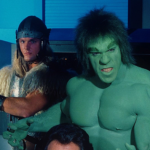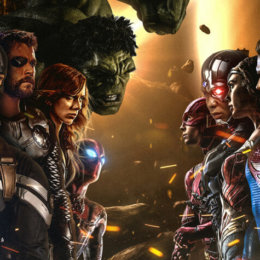HULK. An underrated comic book adaptation
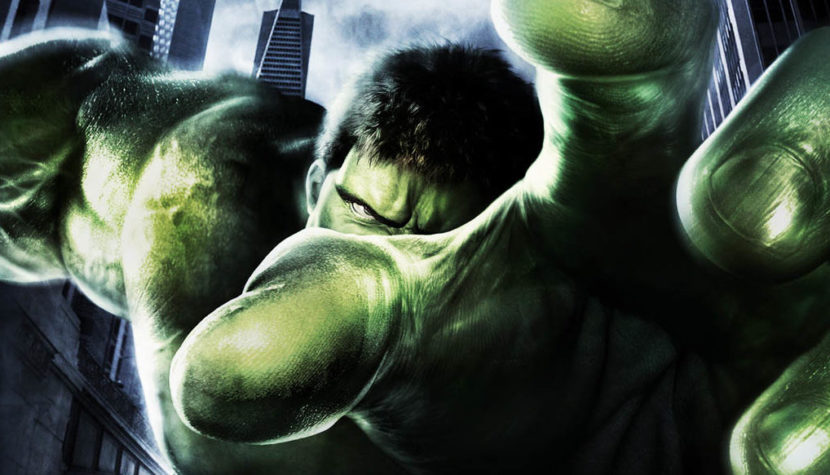
Once upon a time, before cinemas around the world were ruled by the Marvel Cinematic Universe, its heroes appeared in solo, independent films. As a result – in other incarnations, paving the way for superhero cinema, with better and worse artistic and commercial results. That’s how the Spider-Man trilogy was created, that’s how Daredevil with Ben Affleck saw the light of day, and that’s how Ang Lee’s Hulk came to the screens in 2003.
Let me say right away, so that there is no doubt – this is my favorite comic book production from that time. A bit against the grain, because Hulk was neither a great commercial, nor artistic success, but I’m not going to convince anyone to like this version of the adventures of the green giant, because paradoxically I am aware of the flaws one may notice. Nevertheless, I believe that Lee’s view of this character is so interesting (and different, even compared to the current comic book adaptations) that it is worth writing about.
The Hulk is probably my favorite Marvel character, which probably also affects my sympathy for the movie. I find the motif of a double nature very interesting, hence I really like the idea of treating the monster as a metaphor for Bruce Banner’s inner demons and adding a background to it in the form of a toxic relationship with his father, as well as childhood trauma. It’s a perfect way to deepen the psychology of this character. I missed it in the second solo film, the reboot, which was a part of the MCU. That one professed the Hulk smash philosophy! – from a purely entertainment point of view, the right one, especially when we’re talking about an angry creature, but still a bit shallow.
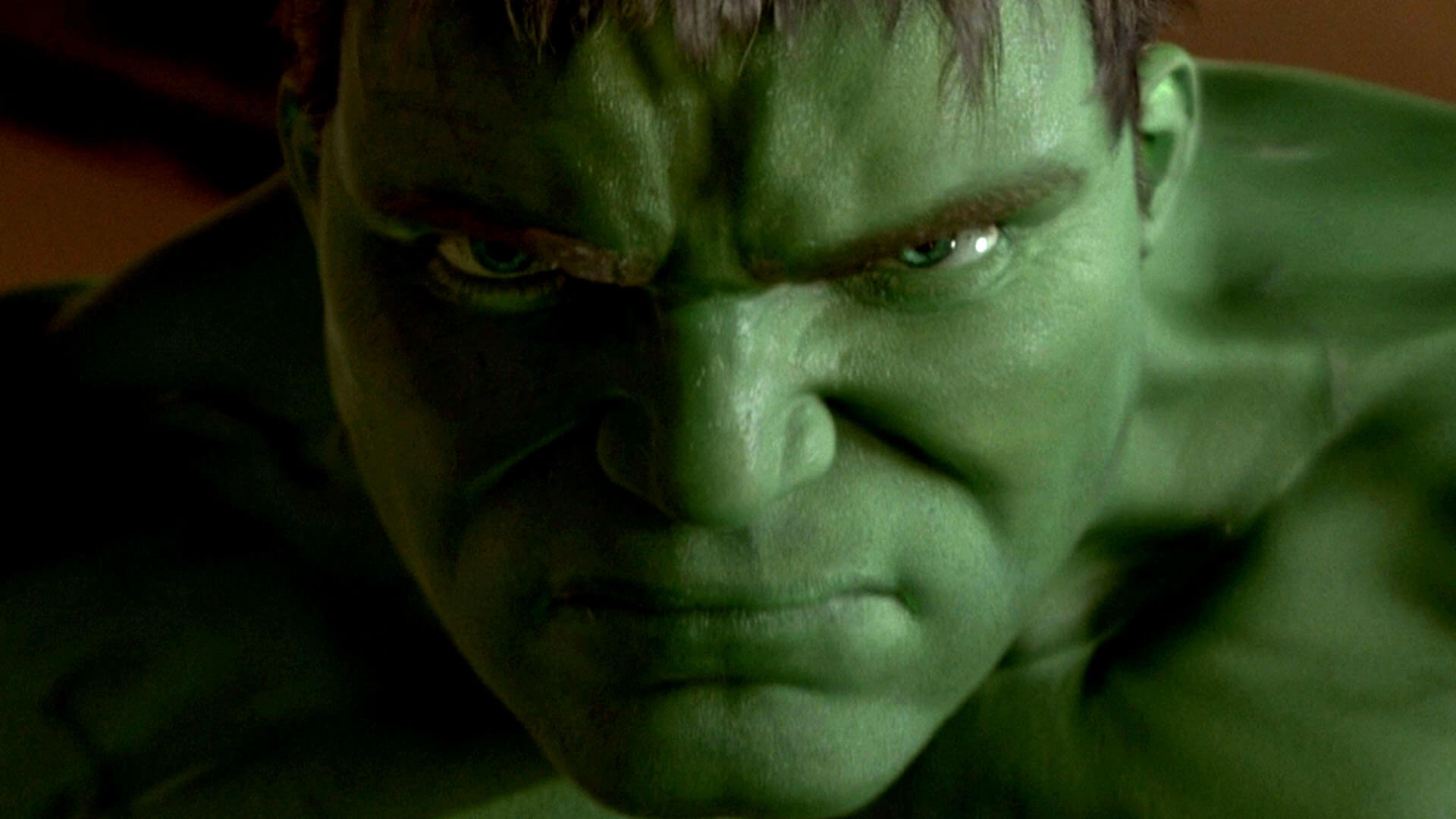
Meanwhile, Lee’s Banner is a victim – mainly of the experiments shown in the prologue, which in themselves caused the monster to be released many years later, but also of the aforementioned trauma, a dramatic event suppressed by him for many years, gradually coming to light during the course of the film . The enemy of the main character is really himself, his story and all this personal drama, additionally personified by his father. It’s a very fresh and original take, unlike other superhero origins. By releasing the Hulk, Banner also releases everything that has always been inside him. The nightmares that plagued him since childhood finally come to the surface. There is a lot of personal tragedy and fatalism in this. The Hulk here isn’t really any superhero. It is the result of the actions of a man who treated his child as an experimental object. He does not fight evil out of a sense of right and duty to humanity – he fights because he must, only for personal reasons, which of course has its culmination.
Due to this interpretation of the characters, the pace of the film is quite unhurried. This is also not the norm in superhero cinema and stands out even from other productions from that time. It is perverse that such a choice fell on a character associated with general destruction, hence I understand people criticizing such a decision – I like this approach, as I mentioned, because it is very refreshing and proves that the script was approached not as an adaptation of a comic book per se se, but as for – simply – a film where a little freedom was allowed.
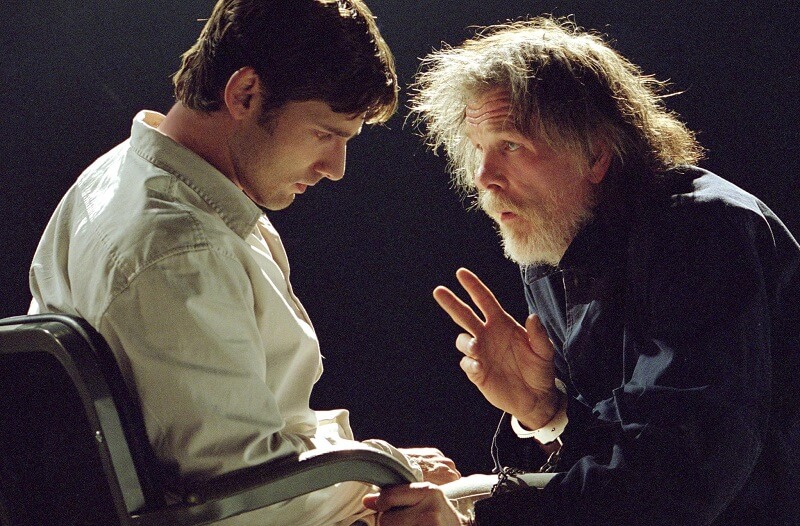
After all, there is no shortage of action, I even think that there’s just right amount of it – in this respect, the highlight of the film is the long sequence of Hulk’s fight with the army in the desert, where Lee shows his powers in full cross-section – superhuman strength, exceptionally far and high jumps , speed and reflexes, and everything is illustrated with a great score by Danny Elfman, who easily finds himself in the convention – both his action score and ethnic-sounding songs with vocals blend fantastically with the director’s image and vision. It will probably not be an exaggeration to say that such good-sounding scores are missing in today’s superhero cinema, where, unfortunately, the music is mostly flat and is usually unnoticeable.
Related:
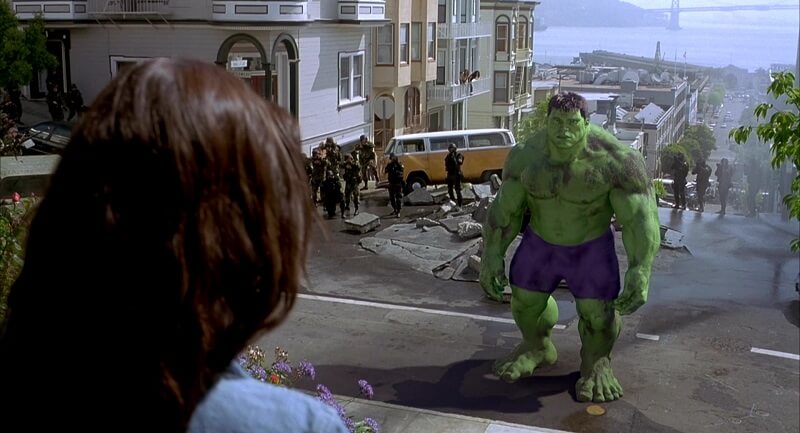
The situation is a bit worse when it comes to static scenes, which, although they are sometimes visually interesting, are spoiled by very dull dialogues and not so much bad as theatrical acting. In one scene, we get the perfect first appearance of the Hulk, wreaking havoc in the lab, only to wince at the sight of Eric Bana slowly mimicking a strong heartbeat with his lips, with Jennifer Connelly staring blankly at him, just moments later. Sure, serious convention requires austerity, but sometimes there’s little life or energy in it. The secondary characters fare much better here. Banner’s father is heavily exaggerated and throws bad lines, but Nick Nolte, fortunately, can sell it somehow. Sam Elliot as General Ross is probably the most credible character – he is not a complicated one, but he is good to watch, not only because of his perfectly trimmed mustache.
Speaking of the visual side, we should notice the procedure that is unique when it comes to superhero cinema, or maybe cinema at all. We are talking about dividing the screen into several parts so that it looks like it is composed of comic panels. This is an interesting idea, although not always accurate, and just as it sometimes diversifies the scene well and allows you to show several perspectives at once, at other times it gives the impression of a senseless overcombination. Smaller editing procedures, such as smooth transitions from one image to another or the gradual appearance of the next frame on the screen, are much better.
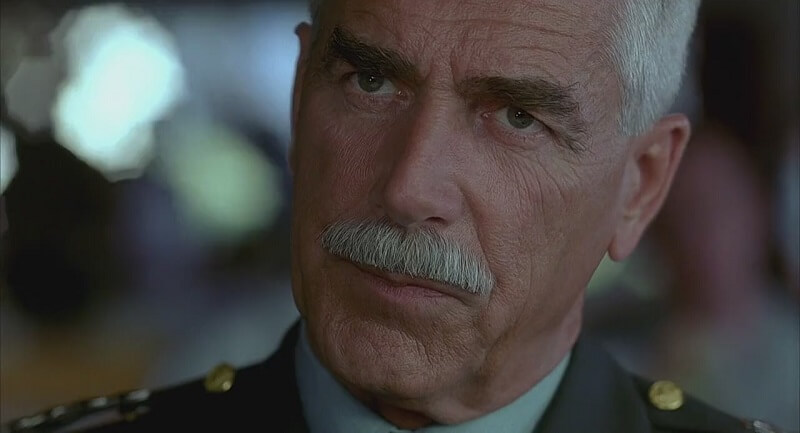
During the last screening, I paid special attention to the Hulk character itself in terms of quality, after all, after 13 years, CGI could get old and scare away. It does not happen; apart from the Hulk design itself, which is discussed below, it is a really decent job that defends itself even after all this time, and at the same time it is much better than the next hero design from the above-mentioned reboot. As for the design itself – the Hulk is, um, too bright and has a too childlike face. Too bright because it looks a bit like plasticine. The baby face, on the other hand… well, maybe it’s a deliberate move, because there’s a lot of talk in the movie about the Hulk as this real child of his father. In any case, not entirely successful, because in some scenes it takes away some of the horror and makes it a bit, how to put it, amusing?
So yes, this movie does have flaws that I understand might bother someone. As I mentioned above – I am not trying to defend it, because it seems to me that tolerating them requires prior acceptance of the vision that has been served. Seriousness (but without unnecessary pomp!), an attempt to explore the character, dosing action, slow pace – things that a person focused on “action, explosions, smashing, constant dynamics” (which today’s superhero cinema gets us used to) will not forgive. Hulk is undoubtedly different from other genre films. It is worth giving it a second chance precisely because of this otherness and looking at it from this angle. Perhaps then it will be treated as a kind of second wind.


